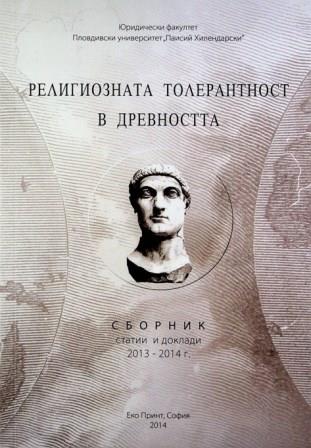Сакрално право, християнство, Милански едикт
Ius Sacrum, Cristianity, Edict of Milan
Author(s): Antonio Fernández de Buján y Arranz
Subject(s): Law, Constitution, Jurisprudence, Canon Law / Church Law, Roman law
Published by: Пловдивски университет »Паисий Хилендарски«
Keywords: cristianity; ius sacrum; edict of Milan
Summary/Abstract: The first thing in the article is a study of the notion of ‘ius sacrum’ as a collective term for all norms related to the practice of various cult in Ancient Rome as well as directions of moral and customary character in which the idea of connection between the Romans and their gods is brought forth- pax deorum. The very title of ‘ius sacrum’ is result of the notion to give legal meaning to the relationship with one’s gods, to the desire to give actual legal form to the relationship of gods and people and to get a clear understanding of the will of the gods by means of multiple priestly congregation acting as intermediary. The presence and influence of worship is followed closely which up until the appearance of Christianity allows for the practice of worship targeted towards other gods in the Roman Empire. The only option which would lead to a ban on non-Roman deities would be breaking the civil order as in with the Vakhanali. This is the basic argumentation for undertaking persecution of Christians who refuse to obey to the state cult and to the cult of the emperor and by so doing break the civil order. The paper offers a study of the stages of persecution as well as new policies starting with so called the Edict of Milan. The beginning of the consolidation of Catholic church are also noted by mentioning the Congress of Nicaea, 325 and further development of Christianity as the state religion and the basis of political doctrine caesaropapism.
Book: Религиозната толерантност в древността : Сборник статии и доклади 2013-2014
- Page Range: 11-16
- Page Count: 6
- Publication Year: 2014
- Language: Bulgarian
- Content File-PDF

